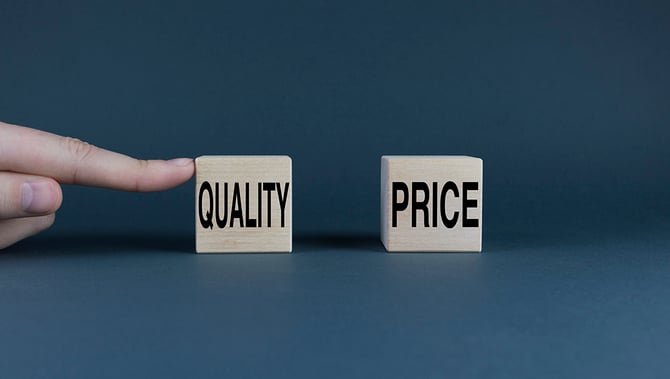
Historical financial performance plays a key role in appraising small businesses; however, not all years are created equal. Economic cycles, management changes, and external shocks can skew one year's numbers compared to others. That is where weighted average valuation comes in; a method that applies varying importance (or "weights") to different years to better reflect the company's true worth.
Weighting is a technique that assigns more importance to certain years over others when calculating average performance metrics, such as gross revenue, EBITDA, or net income. This is often necessary due to the possibility that recent performance is more relevant to current and future expectations. In addition, outlier years due to economic downturns or windfall profits may distort the average. This has become even more prevalent since COVID-19, as both 2020 and 2021 results for many companies may be skewed dramatically in different directions.
The weighting of prior years is somewhat subjective, and the appraiser should rely on their experience and expertise while making common-sense decisions as to how to apply this methodology.
One option is to equally weigh the prior 3+/- years of performance if the company shows a steady level of revenue and net income. This is fairly straightforward but can mask more recent trends and future growth forecasts in the company.
Incremental weighting may be more appropriate in certain instances with recent years given progressively more weight. This drives the emphasis of current performance without completely neglecting older operational periods.
In some cases, especially with newer businesses just getting a foothold, the appraiser may rely 100% on the most recent income and balance sheets as they represent the first full period of operation with everything running in full swing.
The volatility of the market or industry may play a part in this decision as well. If performance in a given industry is overly cyclical, relying on a broader period may smooth out the revenue swings. In contrast, companies showing steady growth year over year may determine a need to rely on more recent performance only.
In conclusion, the weighting of historic financials is an important component of business valuation and can provide a more balanced picture of a company's performance. Whether buying, selling, or just looking at internal strategic planning, speak with your certified valuation professional to discuss this in more detail when engaging in an updated appraisal.





 Business owners are constantly having to review their annual expense budgets for both fixed overhead and variable costs that arise from new projects and demands that come up in any given year. It is common for decisions to be made based largely on who can deliver the lowest price, especially in a competitive market where the product or service needed can come from a multitude of vendors.
Business owners are constantly having to review their annual expense budgets for both fixed overhead and variable costs that arise from new projects and demands that come up in any given year. It is common for decisions to be made based largely on who can deliver the lowest price, especially in a competitive market where the product or service needed can come from a multitude of vendors.

